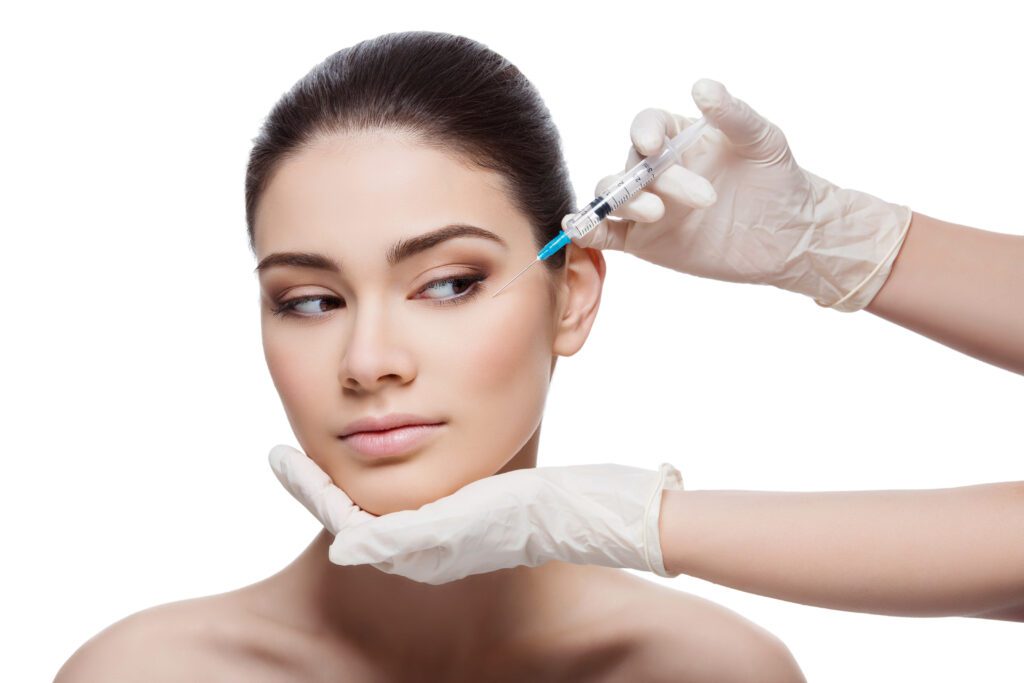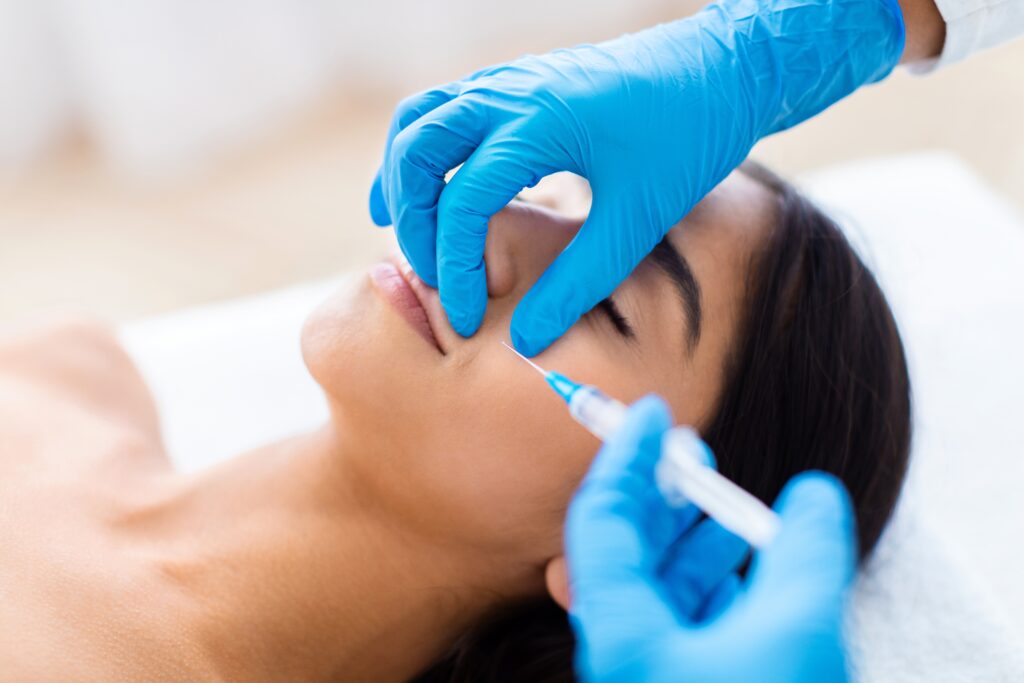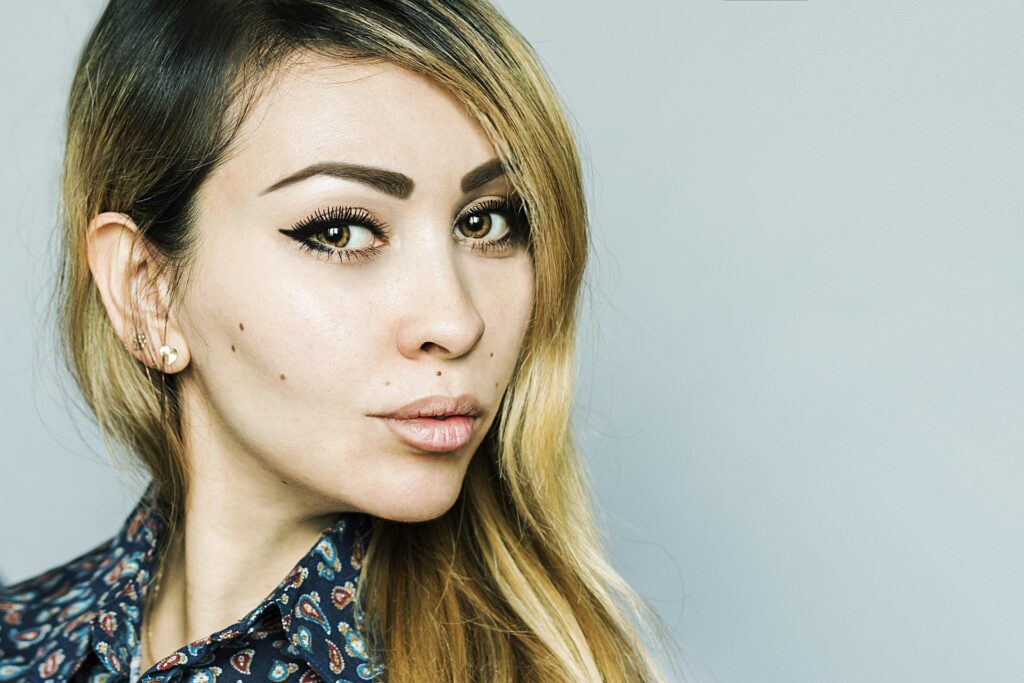Most of us desire putting our best face forward, but it sometimes requires a little help to make it happen. When too many fine lines and wrinkles appear, it might be time to consider Botox®. Made from a neurotoxin that blocks signals transmitted from the nerves to the muscles, Botox® can help smooth existing fine lines and wrinkles and keep new ones from forming.
Even though Botox® treatments are nonsurgical, it’s still important to follow aftercare instructions to achieve the safest and most successful results. Learn what to expect following Botox® injections, read up on aftercare instructions and tips, find out what to avoid after treatment, and know when it’s necessary to contact your provider.
After Treatment & Possible Side Effects
Knowing what to expect after Botox® can help reduce any pre-treatment jitters.
Right after a Botox® session, tiny red bumps may appear in the treatment areas. Typically, these bumps go away by the end of the day, but it may take a little longer. Some people experience light swelling and bruising, which can last from a few days up to two weeks, at most. Cold packs can help relieve these symptoms.
Although rare, a headache or neck ache is possible for a day or two after Botox® injections. If this happens, it’s important to avoid nonsteroidal anti-inflammatory drug (NSAID) pain relievers and use acetaminophen instead. NSAID pain relievers thin the blood, which can worsen bruising.
Following Botox® injections, the initial effects of treatment will be visible in approximately three days, but the full effects may not be visible until about 10 days later. Because Botox® relaxes the treated facial muscles, from the lower face to upper face or forehead area, the appearance of fine lines and wrinkles begin to smooth, and the muscles move less with actions like frowning and wrinkling the brow.
In two to three months, the effects of Botox® will begin to wear off gradually. Those who are happy with their Botox® results often schedule follow-up treatments at that time.
Best Botox® Aftercare Instructions & Tips
To achieve the best and safest results, it’s important to follow the Botox® aftercare instructions established by the treatment provider. Be sure to ask about any medicines or supplements that should be avoided after treatment. Additionally, follow these helpful tips:
- Relax for the remainder of the day.
- Sit up for four hours following treatment to keep the toxin from spreading.
- Move your face gently without touching it by smiling, frowning, and raising the eyebrows.
Sleep on your back for the first night to keep from putting pressure on the effected facial muscles.
What to Avoid After Injections
Knowing what to do after receiving Botox® injections helps ensure optimal results, but safe recovery also means knowing what not to do.
Follow these guidelines unless advised differently by the provider. Treatment providers gather information about individuals’ medical backgrounds, specified needs, and should always be the first source of information for post-treatment care. It’s crucial to find a Botox® provider that you trust so you feel comfortable throughout the treatment process and aftercare.
Don’t Touch or Rub the Face
To keep the neurotoxin from spreading to other parts of the body, avoid touching, rubbing, or applying pressure to the face for at least 24 hours. This includes applying makeup or other products in addition to washing and drying the face.
Skip Any Physical Workout
After receiving Botox® injections, it’s wise to hold off on exercise for at least 24 hours — some providers even recommend a longer period. Exercise boosts blood flow, which can spread the toxin to other parts of the body and reduce its effectiveness in the facial muscles.
Avoid Heat
Elevating the body temperature after Botox® treatments can increase the risk of bruising. For at least 24 hours, avoid activities that can cause spikes in body temperature, including:
- Taking hot baths or showers
- Using saunas, steam rooms, hot tubs, and tanning beds
- Spending time in the sun
- Standing over a hot stove
Don’t Drink Alcohol
Alcohol dilates blood vessels, which can contribute to bruising. For at least 24 hours after treatment, it’s best to pass on adult beverages.
When Should You Contact Your Provider?
Although redness, swelling, tenderness, and bruising are normal side effects of a Botox® treatment, certain side effects are cause for concern.
Patients should contact their provider right away or seek other medical help if they experience any of the following side effects:
- Acute indigestion
- Bladder control issues
- Blurry vision
- Facial paralysis or numbness
- Muscle weakness
- Problems with breathing
- Problems with speech
- Problems with swallowing
Although it is rare, these side effects are serious and should be addressed immediately.
Schedule Your Consultation for Botox Treatment
If you’re not quite ready to tolerate the signs of aging, it’s possible to take some control over those pesky fine lines and wrinkles.
If you live in the Albany, New York, area, schedule a consultation at The Rejuva Center at Williams to see if you’re a good candidate for Botox®. The Rejuva Center offers a highly skilled and caring staff along with safe treatments in a comfortable facility. Call 518-308-4117 today for more information.
Recent Posts

Reversing Smoking Damage to Your Skin
Smoking can cause significant skin damage, affecting both overall skin health and its appearance. However, smoking damage can be severe, but there are ways to reverse skin damage caused by…

Balancing Holistic Practices with Cosmetic Treatments
A holistic approach to beauty, including focusing on lifestyle, nutrition, and mental well-being, contributes to skin health as well as general healthiness. Combining holistic practices like these with the non-surgical…

Xeomin vs. Dysport vs. Botox Injections
Xeomin®, Dysport®, and Botox® are all injectable treatments that belong to a class of medications called neuromodulators that use the same main ingredient, botulinum toxin type A. When used for…

A Complete Guide to the Cosmetic Treatment Process: Start to Finish
Non-surgical cosmetic treatments are a great way to revive your look in a safe and effective manner, without the risks associated with surgery. Since 1999, The Rejuva Center at Williams…


